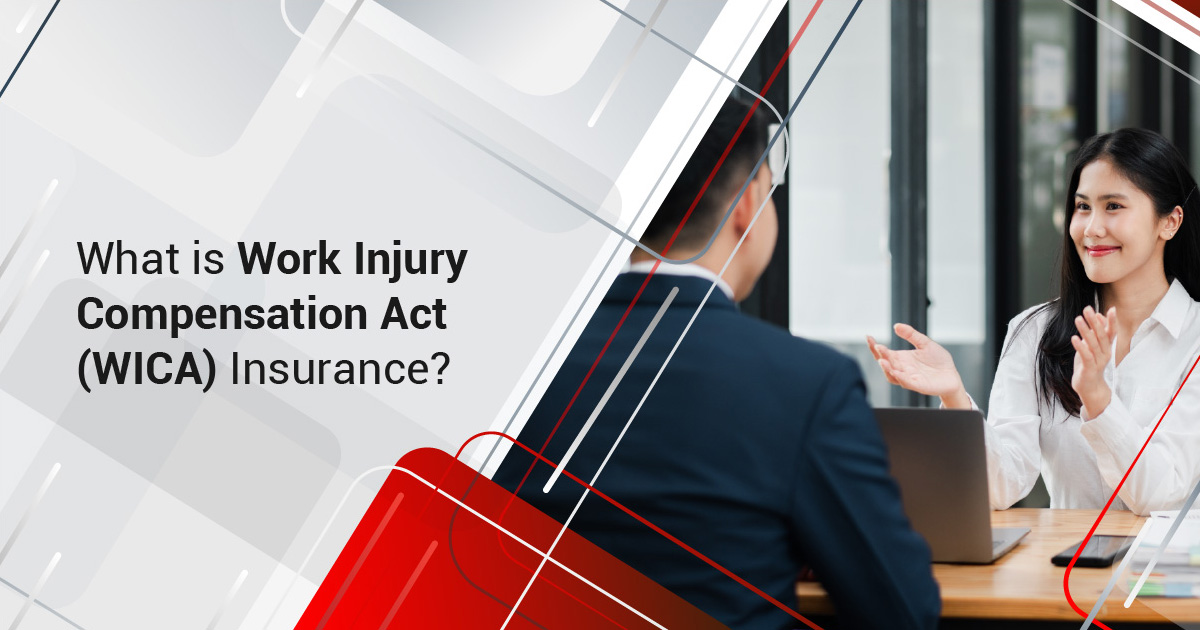工作场所事故是各行各业都存在的不幸现实, 新加坡数万名员工遭受工伤 每年都会发生。当这些事故发生时,雇主和工人都面临着巨大的经济负担——从不断上涨的医疗费用到康复期间的工资损失。这时,工伤保险就变得至关重要。
《工伤赔偿法》(WICA)保险是新加坡的强制性安全网,旨在保护所有员工免受工伤、疾病和职业病的财务影响。与传统保险不同,WICA 采用无过错原则,这意味着员工无需证明雇主存在过失即可获得赔偿,确保在他们最需要的时候迅速获得经济援助。
对于雇主而言,WICA 保险提供了针对潜在毁灭性责任索赔的关键保护,而对于雇员而言,它保证了他们获得医疗保险、工资替代和永久性残疾补偿的机会。
了解这项强制性保险的运作方式,对于打造安全的工作环境至关重要,它能够保护每个人的利益,并确保员工遵守新加坡的雇佣法规。在本博客中,我们将分享有关这项保险的关键细节,以及如何确保合规。
关键精华
- WICA 保险是新加坡的一项法律要求,确保对工作相关的伤害、疾病和职业病提供财务保障。
- WICA 涵盖医疗费用、病假工资以及永久丧失工作能力或死亡的一次性补偿。
- 员工无需证明雇主疏忽即可要求赔偿,从而简化流程并确保及时支持。
- 雇主应评估员工的角色、风险水平和行业特定需求,以选择正确的 WICA 保险政策。
WICA 保险范围是什么?
WICA保险是指新加坡的《工伤赔偿法》(WICA)保险。这是一项强制性保险政策,为遭受工伤、疾病或职业病的员工提供保障。
相关阅读: 什么是新加坡的公司保险?您应该购买吗?
在新加坡,WICA 是强制性的吗?
新加坡的企业主必须获得 WICA 才能:
- 从事体力劳动的员工,无论工资多少
- 从事非体力劳动且月薪不超过2,600新元的员工。这不包括:
- 加班费
- 奖金支付
- 年度工资补贴
- 生产力奖励金
- 津贴
您必须为本地和外籍员工购买WICA保险。对于不属于这些类别的员工,您可以选择是否为他们购买保险。但是,如果员工提出有效索赔,无论他们是否投保,您都必须赔偿。
WICA 和外国工人医疗保险有什么区别?
新加坡的《工伤赔偿法》(WICA)和外籍工人医疗保险(FWMI)有不同的用途:
| 威卡 | 半波米 |
|---|---|
| 涵盖所有员工(本地和外国)的工作相关伤害、疾病和职业病。 | 专门针对持有工作许可证和 S 准证的外国工人。 |
| 提供医疗费用补偿、病假工资以及永久丧失工作能力或死亡的一次性付款。 | 涵盖与工作无关的医疗费用,包括住院费用和日间手术费用。 |
| 员工无需证明过错即可提出索赔,这使其成为普通法索赔的更简单的替代方案。 | 雇主必须为每位员工维持每年至少 60,000 美元的保险金额(截至 2023 年 XNUMX 月)。 |
总而言之,WICA 专注于与工作相关的事件,而 FWMI 则解决外国工人的非工作相关医疗需求
如何购买WICA保险
自1年2021月21日起,所有WIC保单必须由指定保险公司签发,并必须遵守新加坡人力部(MOM)的强制性条款。建议雇主在保单生效前至少XNUMX天完成所有保险合同的签订,并将所需详细信息提供给保险公司。
以下是雇主按照规定的时间范围购买或审查公司 WICA 的清单:
| 1年2021月XNUMX日前生效的保险单 | 1年2021月XNUMX日后生效的保险单 |
|---|---|
|
|
如何选择合适的WICA保险政策
选择适当的保险范围需要仔细评估几个因素:
覆盖率评估
- 员工人数: 对所有受保工人进行准确统计
- 职位分类: 正确分类体力劳动和非体力劳动角色
- 风险级别: 行业特定危害评估
- 薪资范围: 当前用于计算保费的工资结构
供应商选择
选择 MOM 批准的保险公司,提供以下服务:
- 具有竞争力的保费率
- 全面的索赔支持服务
- 强劲的金融稳定评级
- 响应式客户服务能力
政策特点
根据以下因素评估政策:
- 满足您曝光需求的覆盖范围限制
- 索赔处理效率
- 超出最低要求的额外福利
- 保费支付灵活性
特定于行业的注意事项
不同的业务部门面临不同的风险状况,需要采取不同的应对措施:
高危行业
建筑、制造和物流公司应优先考虑:
- 最大覆盖范围限制
- 全面的医疗费用保障
- 强大的索赔支持服务
- 安全咨询资源
办公室业务
专业服务和管理公司可以专注于:
- 满足最低要求的标准覆盖范围
- 具有成本效益的保费结构
- 简化的策略管理
- 数字索赔提交功能
违规处罚
如果您没有为员工提供足够的保险,您将被处以最高 10,000 新元的罚款、最高 12 个月的监禁,或两者并罚。
管理您的 WICA 保险,安心无忧
除了合规性之外,购买 WICA 保险也是对企业财务安全和员工福利的一项战略投资。通过了解您的义务、选择合适的保险范围并遵守适当的规程,您可以为可持续的业务运营奠定基础,同时保护您的员工。
请记住,与未投保的工伤事故可能造成的经济损失相比,适当的商业保险成本微不足道。与经批准的保险公司合作,保持准确的记录,并优先考虑工作场所安全,以最大限度地利用这项基本保险提供的保障。
立即行动,审查您当前的承保范围,评估您的合规状态,并咨询合格的保险专业人士,确保您的 WICA 保险策略符合您的业务需求和监管义务。了解我们如何通过我们提供的全方位服务为您提供帮助!
关于工伤赔偿法(WICA)保险的常见问题解答
为什么只有部分员工必须参加 WIC 保险?
- 强制保险为更多弱势劳动者提供了更大的赔偿保障。
根据 WICA 可以申请哪些福利?
- 新加坡的 WICA 保险提供与工作相关的医疗费用、病假工资以及永久丧失工作能力或死亡的一次性补偿。
如果受伤的外国雇员的工作许可证已过期或被终止,我是否仍需对其福祉负责?
- 是的,您有责任保障外籍员工的日常开销和福祉,直至他们返回祖国。受伤员工应继续入住您提供的住所。


